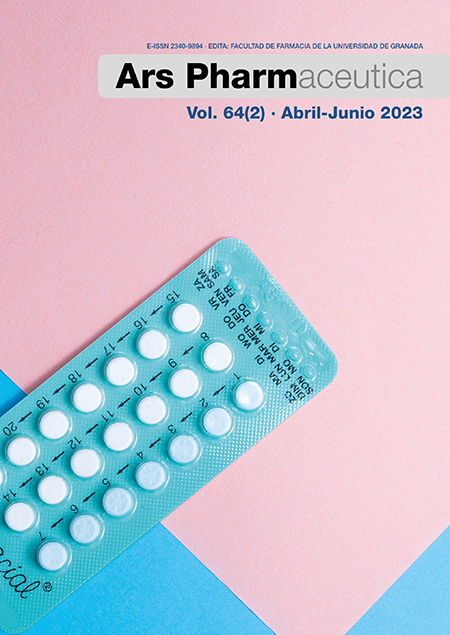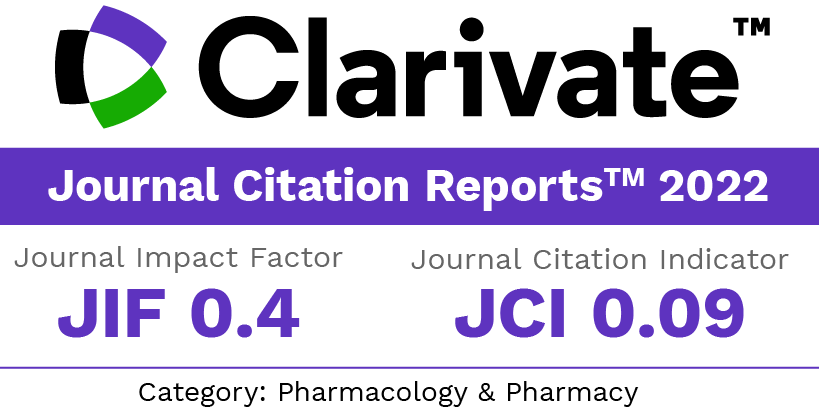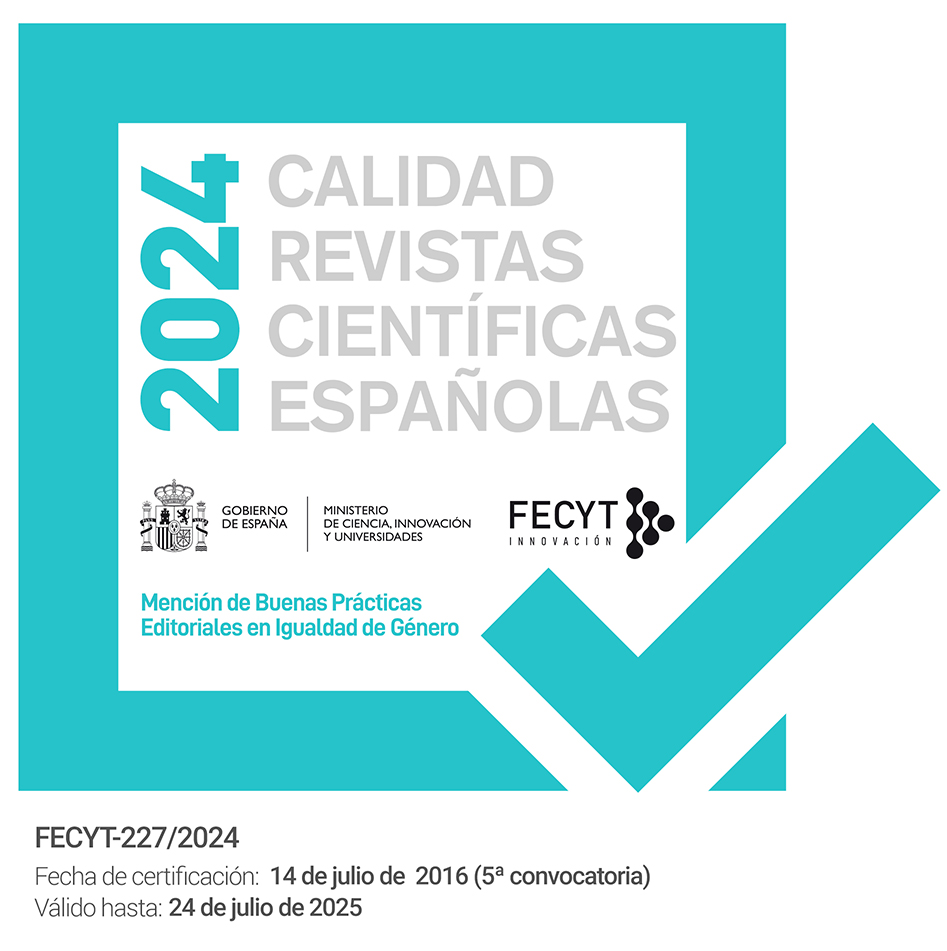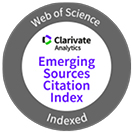Adherence questionnaires to oral antidiabetic treatment in patients with Diabetes Mellitus 2: systematic review
DOI:
https://doi.org/10.30827/ars.v64i2.27256Keywords:
Diabetes Mellitus Type 2; Medication Adherence; Hypoglycemic Agents; Surveys and Questionnaires; Reproducibility of Results.Abstract
Introduction: adherence to oral antidiabetics (OADs) in patients with Type 2 Diabetes Mellitus (DM2) can affect disease control and therefore needs to be evaluated. For this, fast, simple, valid and reliable tools are needed. Thus, the objective of this review was to identify those validated questionnaires that are used to measure adherence to OADs in clinical practice.
Method: a bibliographic search was carried out in the Medline, Scopus and LILACS databases. The selection of articles was performed by 2 authors independently based on Prisma recommendations. The selection criteria were: Articles with validated questionnaires in patients with DM2, in Spanish or English and published until 31 November 2022. Reliability tests (internal consistency, item-total correlation, intraclass correlation coefficient) and validity of the questionnaires (construct validity, criteria and content).
Results: 23 articles were part of the review.10 questionnaires to measure adherence to the ODAs were obtained, which were validated in 14 countries. The 8-item Self-Reported Medication Adherence Measure (MMAS-8) and the Adherence to Refills and Medications Scale (ARMS) were the most used. All presented at least one measure of validity and reliability, the validity of known groups being the least used.
Conclusions: There are questionnaires that present better validity or reliability data than others, but it should be the healthcare professional who determines which one best suits their patients or their study.
Downloads
References
International Diabetes Federation (IDF) Diabetes Atlas. 10th edition.[monografía en internet]. International Diabetes Federation; 2021[citado 20 de diciembre de 2022] disponible en: https://fmdiabetes.org/wp-content/uploads/2022/01/IDF_Atlas_10th_Edition_2021-comprimido.pdf
Soriguer F, Goday A, Bosch-Comas A, et al. Prevalence of diabetes mellitus and impaired glucose regulation in Spain: the Di@bet.es Study. Diabetologia. 2012; 55(1):88-93. doi: 10.1007/s00125-011-2336-9. DOI: https://doi.org/10.1007/s00125-011-2336-9
Rojo-Martínez G, Valdés S, Soriguer F, et al. Incidence of diabetes mellitus in Spain as results of the nation-wide cohort di@bet.es study. Sci Rep. 2020; 10(1):2765. doi: 10.1038/s41598-020-59643-7. DOI: https://doi.org/10.1038/s41598-020-59643-7
Ministerio de Sanidad - Portal Estadístico del SNS - Informe anual del Sistema Nacional de Salud [Internet]. [citado 13 de noviembre de 2022]. Disponible en: https://www.sanidad.gob.es/estadEstudios/estadisticas/sisInfSanSNS/tablasEstadisticas/InfAnSNS.htm
Guía ESC 2019 sobre diabetes, prediabetes y enfermedad cardiovascular, en colaboración con la European Association for the Study of Diabetes (EASD) [Internet]. [citado 13 de noviembre de 2022]. Disponible en: https://www.revespcardiol.org/es-pdf-S0300893220300889.
Egede LE, Gebregziabher M, Echols C, Lynch CP. Longitudinal effects of medication nonadherence on glycemic control. Ann Pharmacother. 2014; 48(5):562-70.doi: 10.1177/1060028014526362. DOI: https://doi.org/10.1177/1060028014526362
Iglay K, Cartier SE, Rosen VM, et al. Meta-analysis of studies examining medication adherence, persistence, and discontinuation of oral antihyperglycemic agents in type 2 diabetes. Curr Med Res Opin. 2015; 31(7):1283-1296. doi:10.1185/03007995.2015.1053048. DOI: https://doi.org/10.1185/03007995.2015.1053048
Moreno Juste A, Gimeno Miguel A, Poblador Plou B, et al. Adherence to treatment of hypertension, hypercholesterolaemia and diabetes in an elderly population of a Spanish cohort. Med Clin (Barc). 2019; 153(1):1-5. doi:10.1016/j.medcli.2018.10.023. DOI: https://doi.org/10.1016/j.medcle.2018.10.026
Pagès-Puigdemont N, Valverde-Merino MI. Métodos para medir la adherencia terapéutica. Ars Pharm. 2018; 59(3):163-172. doi:10.30827/ars.v59i3.7387. DOI: https://doi.org/10.30827/ars.v59i3.7387
Page MJ, McKenzie JE, Bossuyt PM, et al. The PRISMA 2020 statement: An updated guideline for reporting systematic reviews. J Clin Epidemiol. 2021; 134:178-189. doi: 10.1016/j.jclinepi.2021.03.001. DOI: https://doi.org/10.1016/j.jclinepi.2021.02.003
Sakthong P, Chabunthom R, Charoenvisuthiwongs R. Psychometric properties of the Thai version of the 8-item Morisky Medication Adherence Scale in patients with type 2 diabetes. Ann Pharmacother. 2009; 43(5):950-957. doi:10.1345/aph.1L453. DOI: https://doi.org/10.1345/aph.1L453
Al-Qazaz HK, Hassali MA, Shafie AA, Sulaiman SA, Sundram S, Morisky DE. The eight-item Morisky Medication Adherence Scale MMAS: Translation and validation of the Malaysian version. Diabetes Res Clin Pract. 2010; 90(2):216-221. doi:10.1016/j.diabres.2010.08.012. DOI: https://doi.org/10.1016/j.diabres.2010.08.012
Lee WY, Ahn J, Kim JH, et al. Reliability and validity of a self-reported measure of medication adherence in patients with type 2 diabetes mellitus in Korea. J Int Med Res. 2013; 41(4):1098-1110. doi:10.1177/0300060513484433. DOI: https://doi.org/10.1177/0300060513484433
Tandon S, Chew M, Eklu-Gadegbeku CK, Shermock KM, Morisky DE. Validation and psychometric properties of the 8-item Morisky Medication Adherence Scale (MMAS-8) in Type 2 diabetes patients in sub-Saharan Africa. Diabetes Res Clin Pract. 2015; 110(2):129-136. doi:10.1016/j.diabres.2015.10.001. DOI: https://doi.org/10.1016/j.diabres.2015.10.001
Ashur ST, Shamsuddin K, Shah SA, Bosseri S, Morisky DE. Reliability and known-group validity of the Arabic version of the 8-item Morisky Medication Adherence Scale among type 2 diabetes mellitus patients. East Mediterr Health J. 2015; 21(10):722-728. doi:10.26719/2015.21.10.722. DOI: https://doi.org/10.26719/2015.21.10.722
Martinez-Perez P, Orozco-Beltrán D, Pomares-Gomez F, et al. Validation and psychometric properties of the 8-item Morisky Medication Adherence Scale (MMAS-8) in type 2 diabetes patients in Spain. Aten Prim. 2021; 53(2):101942. doi: 10.1016/j.aprim.2020.09.007. DOI: https://doi.org/10.1016/j.aprim.2020.09.007
Kripalani S, Risser J, Gatti ME, Jacobson TA. Development and evaluation of the Adherence to Refills and Medications Scale (ARMS) among low-literacy patients with chronic disease. Value Health. 2009; 12(1):118-123. doi: 10.1111/j.1524-4733.2008.00400.x. DOI: https://doi.org/10.1111/j.1524-4733.2008.00400.x
Mayberry LS, Gonzalez JS, Wallston KA, Kripalani S, Osborn CY. The ARMS-D out performs the SDSCA, but both are reliable, valid, and predict glycemic control. Diabetes Res Clin Pract. 2013; 102(2):96-104.doi: 10.1016/j.diabres.2013.09.010. DOI: https://doi.org/10.1016/j.diabres.2013.09.010
Kim CJ, Park E, Schlenk EA, Kim M, Kim DJ. Psychometric Evaluation of a Korean Version of the Adherence to Refills and Medications Scale (ARMS) in Adults With Type 2 Diabetes. Diabetes Educ. 2016; 42(2):188-198. doi:10.1177/0145721716632062. DOI: https://doi.org/10.1177/0145721716632062
Gökdoğan F, Kes D. Validity and reliability of the Turkish Adherence to Refills and Medications Scale. Int. J. Nurs. Pract. 2017; 23(5):e12566. doi: 10.1111/ijn.12566. DOI: https://doi.org/10.1111/ijn.12566
Alammari G, Alhazzani H, AlRajhi N, et al. Validation of an Arabic Version of the Adherence to Refills and Medications Scale (ARMS). Healthcare. 2021; 9(11):1430. doi: 10.3390/healthcare9111430. DOI: https://doi.org/10.3390/healthcare9111430
Urzúa M A, Cabrera R C, González V C, et al. Psychometric properties of the diabetes mellitus 2 treatment adherence scale version III (EATDM-III) adapted for Chilean patients. Rev Med Chile. 2015; 143(6):733-743. doi:10.4067/S0034-98872015000600006. DOI: https://doi.org/10.4067/S0034-98872015000600006
Demirtaş A, Akbayrak N. Development of an assessment scale for treatment compliance in type 2 Diabetes Mellitus in Turkish population: Psychometric evaluation. Int J Nurs Sci. 2017; 4(3):244-251. doi:10.1016/j.ijnss.2017.06.002 DOI: https://doi.org/10.1016/j.ijnss.2017.06.002
Chung WW, Chua SS, Lai PSM, Morisky DE. The Malaysian Medication Adherence Scale (MALMAS): Concurrent Validity Using a Clinical Measure among People with Type 2 Diabetes in Malaysia. PLoS One. 2015; 10(4):e0124275. doi:10.1371/journal.pone.0124275. DOI: https://doi.org/10.1371/journal.pone.0124275
Lai PSM, Sellappans R, Chua SS. Reliability and Validity of the M-MALMAS Instrument to Assess Medication Adherence in Malay-Speaking Patients with Type 2 Diabetes. Pharmaceut Med. 2020; 34(3):201-207. doi:10.1007/s40290-020-00335-y. DOI: https://doi.org/10.1007/s40290-020-00335-y
Wang Y, Lee J, Toh MPHS, Tang WE, Ko Y. Validity and reliability of a self-reported measure of medication adherence in patients with Type 2 diabetes mellitus in Singapore. Diabet Med. 2012; 29(9):e338-344. doi:10.1111/j.1464-5491.2012.03733.x. DOI: https://doi.org/10.1111/j.1464-5491.2012.03733.x
Momirovic A, Ganza M, Culig B, Leppee M, Prga I. Psychometric properties of the Culig’s questionnaire. Psychiatr Danub. 2016; 28 Suppl 2:234-241.
Ayoub D, Mroueh L, El-Hajj M, et al. Evaluation of antidiabetic medication adherence in the Lebanese population: development of the Lebanese Diabetes Medication Adherence Scale. Int J Pharm Pract. 2019; 27(5):468-476. DOI: https://doi.org/10.1111/ijpp.12558
Boas LCGV, Lima MLSAP de, Pace AE. Adherence to treatment for diabetes mellitus: validation of instruments for oral antidiabetics and insulin. Rev Lat Am Enfermagem. 2014; 22(1):11-18.doi:10.1590/0104-1169.3155.2386. DOI: https://doi.org/10.1590/0104-1169.3155.2386
Díaz Romero RM, Mendoza Flores ME, Belmont Padilla J. Validación de un instrumento para evaluar la adherencia terapéutica en diabéticas durante el embarazo. Perinatol reprod hum. 2004; 217-224.
Prado-Aguilar CA, Martínez YV, Segovia-Bernal Y, Reyes-Martínez R, Arias-Ulloa R. Performance of two questionnaires to measure treatment adherence in patients with Type-2 diabetes. BMC Public Health. 2009; 9: 38.doi: 10.1186/1471-2458-9-38. DOI: https://doi.org/10.1186/1471-2458-9-38
Strainer D, Norman G, Cairney J. Health measurement scales. A practical guide to their development and use.5th ed. Oxford. 2015. DOI: https://doi.org/10.1093/med/9780199685219.001.0001
Carvajal A, Centeno C, Watson R, Martinez M, Rubiales AS. ¿Cómo validar un instrumento de medida de la salud? Anales del Sistema Sanitario de Navarra [Internet]. 2011 [citado 15 de diciembre de 2022]; 34(1). Disponible en: https://recyt.fecyt.es/index.php/ASSN/article/view/10317. DOI: https://doi.org/10.4321/S1137-66272011000100007
Lamprea JAM, Gómez-Restrepo C. Validez en la evaluación de escalas. Revista Colombiana de Psiquiatría. 2007; 36(2):340.
Morisky DE, Ang A, Krousel-Wood M, Ward HJ. Predictive validity of a medication adherence measure in an outpatient setting. J Clin Hypertens (Greenwich). 2008; 10(5):348-354. doi:10.1111/j.1751-7176.2008.07572.x. DOI: https://doi.org/10.1111/j.1751-7176.2008.07572.x
Mallah Z, Hammoud Y, Awada S, et al. Validation of diabetes medication adherence scale in the Lebanese population. Diabetes Res Clin Pract. 2019; 156.doi:10.1016/j.diabres.2019.107837. DOI: https://doi.org/10.1016/j.diabres.2019.107837
Hatah E, Rahim N, Makmor-Bakry M, et al. Development and validation of Malaysia Medication Adherence Assessment Tool (MyMAAT) for diabetic patients. PLoS One. 2020; 15(11):e0241909. doi:10.1371/journal.pone.0241909. DOI: https://doi.org/10.1371/journal.pone.0241909
Lu Y, Xu J, Zhao W, Han HR. Measuring Self-Care in Persons With Type 2 Diabetes: A Systematic Review. Eval Health Prof. 2016; 39(2):131-184. doi:10.1177/0163278715588927. DOI: https://doi.org/10.1177/0163278715588927
Moon SJ, Lee WY, Hwang JS, Hong YP, Morisky DE. Accuracy of a screening tool for medication adherence: A systematic review and meta-analysis of the Morisky Medication Adherence Scale-8. PLoS One. 2017; 12(11):e0187139. doi: 10.1371/journal.pone.0187139. DOI: https://doi.org/10.1371/journal.pone.0187139
Downloads
Published
How to Cite
Issue
Section
License
Copyright (c) 2023 Elisabet Esquivel-Prados

This work is licensed under a Creative Commons Attribution-NonCommercial-ShareAlike 4.0 International License.
The articles, which are published in this journal, are subject to the following terms in relation to the rights of patrimonial or exploitation:
- The authors will keep their copyright and guarantee to the journal the right of first publication of their work, which will be distributed with a Creative Commons BY-NC-SA 4.0 license that allows third parties to reuse the work whenever its author, quote the original source and do not make commercial use of it.
b. The authors may adopt other non-exclusive licensing agreements for the distribution of the published version of the work (e.g., deposit it in an institutional telematic file or publish it in a monographic volume) provided that the original source of its publication is indicated.
c. Authors are allowed and advised to disseminate their work through the Internet (e.g. in institutional repositories or on their website) before and during the submission process, which can produce interesting exchanges and increase citations of the published work. (See The effect of open access).























